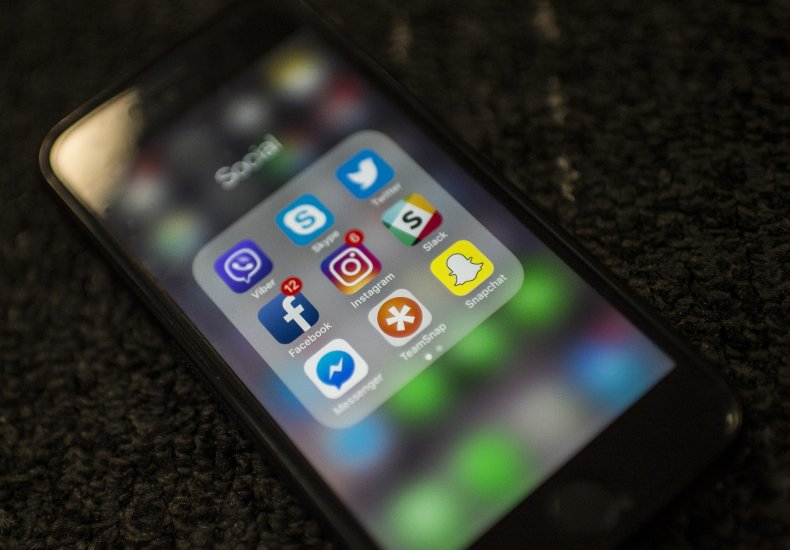It's Time for ID Verification on Social Media | Opinion
The torrent of racial abuse targeted at England's Black players has led to some—guided by media personality Katie Price—to call for ID verification when using social media. The petition is already on its way to a million signatures, showing that the idea is popular.
The U.K. government already rejected the proposal. Even if it isn't a legal requirement, I want to see social media sites improving security and safety as part of their maturation into important public spaces. These are the steps that my industry, e-commerce (including peer-to-peer "social" sites like eBay), took years ago. Without these steps, many wouldn't be comfortable using e-commerce sites. Social media websites now need to do the same.
The internet is young, and is still very much a work-in-progress. Part of that progress is increasing security and standards so that they are safe spaces for everyone. Just as an e-commerce transaction cannot be anonymous because there is money involved, social media shouldn't be anonymous because there is personal safety and societal resilience at stake.
I remember in 2002, hesitating to put my card details into the Amazon site. I am sure many will be just as hesitant to scan their passports or driving licenses to log in to Facebook or Twitter.
That hesitation is understandable, but just as verification and security protected e-commerce from fraudsters, social media can be cleansed of trolls.
Ultimately social media is more similar to e-commerce than many realize. It is a marketplace of ideas, rather than products. If you want to trade in that marketplace, you shouldn't demand anonymity during the transaction—unless you are up to no good.
This may be seen as an infringement on civil liberties, or as the government stated in its response, something that will "interfere with freedom of expression," but many of the worst trolls are, according to English football manager Gareth Southgate, in fact foreign bots. It isn't beyond the realm of possibility—or even probability—that foreign actors would seek to create social divisions in England and elsewhere through abusing the freedom of expression that social media provides.

ID checks would eliminate foreign bots and trolls overnight, simply because, even when there are individuals behind this automated activity, they are coordinating a huge number of accounts. Surely this one-off admin task is a small price to pay for us all—football stars and everyone else—to enjoy troll-free social media?
We wouldn't even need to share our ID with the social media sites themselves—many users (perhaps ironically) don't trust Big Tech, and have been subject to data leaks in the past.
Fortunately, there are many eKYC, or electronic Know Your Customer, companies who are in the business of securely and swiftly verifying IDs remotely as part of account opening with banks or stock brokers, just as there are payment gateways like PayPal who allow us to safely trade with companies we don't know or trust.
They would be, I am sure, more than happy to provide their services to social media. They also offer a "burn after verifying" process so there is not even a concern of future data leaks compromising individuals' IDs.
For those individuals without access to ID documents (who the U.K. government was alluding to when referring to the impact on "vulnerable users" of ID verification) they could be offered a limited social media experience where they can only DM or comment on posts of friends and family, and not on public figure profiles.
It is not a God-given right to send your thoughts directly to a footballer's personal iPhone. Those unable or unwilling to identify themselves can continue to use social media to contact family and friends, and access information on their local communities or schools.
This would be the equivalent to freely (and anonymously) browsing an e-commerce site. It is only when someone wants to enter a transaction (equivalent in social media terms to engaging with a public figure in debate) that they must go through checks and balances.
Social media sites have proven that they can all but eliminate harmful content like COVID misinformation. There also doesn't seem to be the same pressure on them to remove racism from their platforms. It doesn't take a particularly sophisticated algorithm to know that if an account is commenting with 20 monkey emojis on a Black footballer's status that they are trolling and their comment should be blocked.
But in the absence of algorithmic solutions, perhaps it is time for us to put our name on our comments and DMs. And if we are more comfortable in the shadows, perhaps we should be relocating to those sites like Gab and Discord who welcome trolls and neo-Nazis, but not star footballers.
Dominic Wells is CEO of Onfolio, a platform to enable investors to profit from online businesses.
The views expressed in this article are the writer's own.


